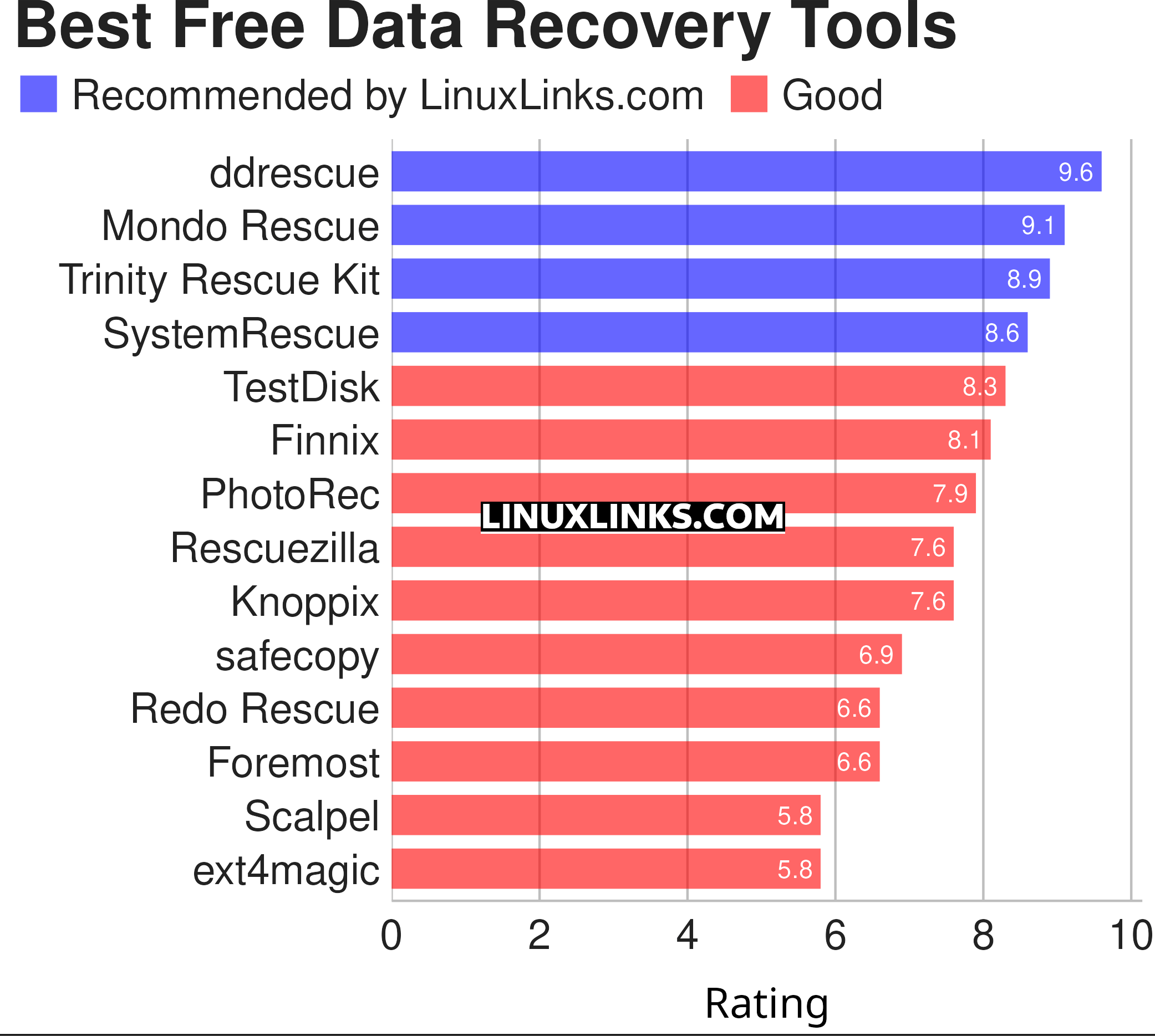Data recovery is the process of retrieving data from corrupted or damaged storage media when it cannot be accessed. The storage media in question will often be a hard disk, but it can also be removable media such as CDs, DVDs, Blu-rays, and USB keys. There are many different reasons why a system administrator may need to use data recovery tools.
At boot up, mainstream Linux distributions perform routine scans to identify and fix any inconsistencies in the file system. A damaged file system might be caused by the computer not shutting down in an orderly fashion, which can occur say in the event of a power cut. However, such routine scans will not detect hardware failure which might exist for a long period without being noticeable to users. Accesses to bad sectors on the media can make the situation worse, and with further usage as well as the passage of time, the media can eventually become unreadable.
As data is a priceless asset for many organizations, you might think it will be necessary to use a professional recovery service. However, these are incredibly expensive. A better strategy is to have a good set of open source software with a plan ready to be implemented if you need to recover the system, and not simply to have made regular backups of data, and saved the partitioning information on the hard disk.
Here’s our ratings chart with our verdict. Only free and open source software is eligible for inclusion. These tools may well be a life-saver in the event that you need to retrieve data from corrupted media. We would strongly recommend that you become familiar with how they work just in case you are ever put in the position of needing to recover data.

Click the links in the table below to learn more about each tool.
| Data Recovery Tools | |
|---|---|
| ddrescue | GNU data recovery tool |
| Mondo Rescue | Tool for configuring and maintaining network machines |
| Trinity Rescue Kit | Live distro that aims specifically at recovery and repair operations |
| SystemRescue | System rescue disk |
| TestDisk | Partition scanner and disk recovery tool |
| Finnix | Small, self-contained, bootable CD distro |
| PhotoRec | Digital Picture and File Recovery |
| Rescuezilla | Complete disaster recovery solution |
| Knoppix | Noteworthy for its collection of utilities for system repair |
| safecopy | Copy utility ignoring errors |
| Redo Rescue | Backup and recovery solution |
| Foremost | Recover files based on their headers, footers, and internal data structures |
| Scalpel | Data carving tool |
| ext4magic | Recover deleted or overwritten files |
This article has been revamped in line with our recent announcement.
 Read our complete collection of recommended free and open source software. Our curated compilation covers all categories of software. Read our complete collection of recommended free and open source software. Our curated compilation covers all categories of software. Spotted a useful open source Linux program not covered on our site? Please let us know by completing this form. The software collection forms part of our series of informative articles for Linux enthusiasts. There are hundreds of in-depth reviews, open source alternatives to proprietary software from large corporations like Google, Microsoft, Apple, Adobe, IBM, Cisco, Oracle, and Autodesk. There are also fun things to try, hardware, free programming books and tutorials, and much more. |

Some of these tools have not been updated in years.
Do you plan to test more recent live CDs such as Kaisen Linux, 4MLinux or Ikki Boot ?
This group test is not really about distros like Ikki Boot. Sure Ikki Boot, 4MLinux include data recovery tools, but so do lots of other distros. We therefore limit the number of distros included in this roundup, and focus more on the data recovery tools themselves. Maybe we’ll split out the live distros already in the roundup, and then reconsider other distros.
If a few of the tools have not been updated in a few years, they won’t be any newer in live CDs. The point should be what, if any, tools do these live CDs include that are better data recovery tools.
ddrescue is an amazing tool. Managed to save lots of data with it, highly recommended.
100% agree with you Susu!